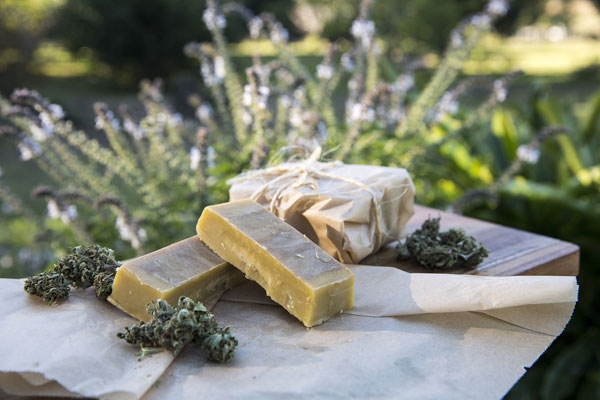California Startup Savor introduces innovative animal-free butter using carbon capture

[Butter. Photo credit to pixabay]
In 2024, Savor, a California-based startup, presented its groundbreaking animal-free butter, synthesized from carbon dioxide using a novel thermochemical process.
This innovative product promises to deliver the same rich taste and texture as traditional dairy butter without the environmental toll of livestock farming.
Savor’s creation is set to revolutionize the food industry.
It is eco-friendly and meets the growing demand for sustainable food.
The initial step in producing this inventive butter is to convert carbon dioxide, hydrogen, and oxygen into synthetic fat, eliminating the need for cows.
This synthetic fat is then combined with water, an emulsifier, beta-carotene for color, and rosemary oil for flavor, resulting in a butter that closely mimics the properties of its dairy counterpart.
Savor’s animal-free butter not only meets high culinary standards but also offers significant environmental benefits.
As presented by the United Nations, the U.S. livestock industry, which is responsible for producing traditional dairy products, contributes substantially to greenhouse gas emissions–between 11.1% and 19.6% of human-made emissions.
In contrast, Savor’s synthetic fat boasts a much lower carbon footprint, as Savor’s butter produces 0.8 grams of CO2 equivalent per calorie, compared to 2.4 grams for conventional unsalted butter with 80% fat content.
The implications of this technology extend beyond mere butter.
Savor is also exploring synthetic fat alternatives for high-demand products like palm oil and coconut oil, which are often associated with deforestation and environmental degradation.
Replacing these fats with synthetic alternatives could reduce the ecological impact of food production.
Moreover, synthetic food production, not relying on traditional agriculture, could free up vast tracts of land for conservation and carbon storage, offering the benefit of food security and environmental preservation.
Bill Gates, a major investor in Savor, has publicly endorsed the company’s products, noting their potential to help achieve global climate goals.
He praised the minimal environmental impact of Savor’s process, which utilizes no farmland and consumes less than one-thousandth of the water required by traditional agriculture.
In a blog post, Gates shared his experience tasting Savor’s butter, expressing his amazement at its similarity to real butter, as he lauded the innovation’s potential to reduce the carbon footprint associated with food production.
Despite these promising developments, Savor facesseveral challenges as it navigates the regulatory process anticipated to bring its products to the market by 2025.
The company also anticipates consumer skepticism toward synthetic fats.
While the environmental and sustainability benefits are clear, convincing consumers to switch from familiar dairy products to lab-made alternatives may be difficult.
As the world grapples with the urgent need to reduce greenhouse gas emissions and protect natural resources, innovations like Savor’s animal-free butter represent a hopeful step forward.
By combining cutting-edge science with an unwavering commitment to sustainability, Savor aims to transform the food industry and provide consumers with a delicious way to support environmental conservation.
The path to a more sustainable future is complex, but with products that satisfy both taste and ecological responsibility, companies like Savor are paving the way.

- Jiyu Sohn / Grade 10
- St.Johnsbury Academy Jeju

![THE HERALD STUDENT REPORTERS [US]](/assets/images/logo_student_us.png)
![THE HERALD STUDENT REPORTERS [Canada]](/assets/images/logo_student_ca.png)
